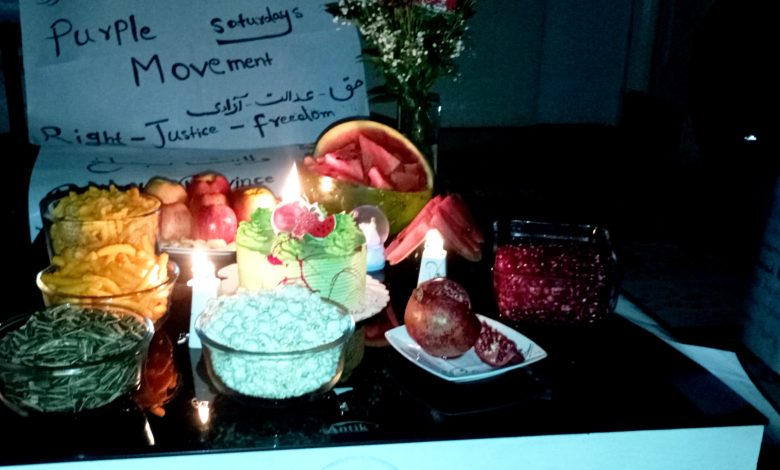The prohibition of Shab-e-Yalda is a blatant violation of cultural rights and freedoms and an outright denial of the national identity of the people of Afghanistan:Report by Ahmad Soheil Parto
AfgNews24 Afghan news24

The prohibition of Shab-e-Yalda is a blatant violation of cultural rights and freedoms and an outright denial of the national identity of the people of Afghanistan:
Report by Ahmad Soheil Parto
During their first reign of darkness and anti-civilization, the Taliban had already banned ancient festivals such as Shab-e-Yalda and Nowruz. Now, for the third consecutive year, they have declared the celebration of these ancient customs and cultural heritage as prohibited in Afghanistan. Citizens are forced to observe Shab-e-Yalda in secrecy, fearing the crackdown by the Taliban.
This ban not only suppresses a national celebration but also constitutes a clear violation of cultural rights, fundamental freedoms, and freedom of expression. It is a form of cultural apartheid aimed at eradicating cultural heritage, disrupting the transmission of traditions and cultural symbols to future generations, erasing cultural diversity, and enforcing ideological homogenization in Afghanistan society. This clearly demonstrates the Taliban’s unchanged ideology.
On one hand, the Taliban’s policy puts at risk the loss and forgetting of many cultural elements, weakening the national identity of the people of Afghanistan. On the other hand, it leads to the erosion of national unity and fosters the flight of cultural elites from the country—resulting in irreparable harm to Afghanistan’s cultural diversity. In such a situation, UNESCO (United Nations Educational, Scientific and Cultural Organization), despite registering Shab-e-Yalda as a shared cultural heritage of Afghanistan and Iran on the Intangible Cultural Heritage list, and engaging in specialized efforts to preserve and promote cultural values, remains responsible to take strong action against the Taliban’s measures. However, to date, there has been no effective or practical response—only symbolic statements and declarations, which are insufficient. The people of Afghanistan continue to bear the burden of this silence and inaction.
The Taliban, by violating cultural rights and freedoms, are seeking to turn Afghanistan into a dark graveyard where voices of reason, culture, and joy are silenced. Yet, despite having the diplomatic and political tools to exert pressure, the international community and the United Nations continue to tacitly support the Taliban, normalizing and legitimizing the suppression of fundamental cultural rights. This inaction amounts to a betrayal of shared human values.
We, with grave concern over the systematic and planned violation of cultural rights and freedoms by the Taliban, emphasize that these actions could lead to the extinction of cultural diversity, halt or reduce the transmission of cultural heritage to future generations, and promote Taliban ideologies accompanied by violence.
The cessation of violations of cultural rights and freedoms of the people of Afghanistan requires serious diplomatic, political, and economic action from the international community, the United Nations, and regional countries. Silence and inaction in the face of such blatant human rights violations constitute a betrayal of fundamental human values.
The celebration of ancient cultural and historical festivals such as Shab-e-Yalda is not just a celebration of a cultural day, but a message of resistance and defiance against the Taliban, Taliban ideology, and a form of cultural struggle to secure cultural freedoms. It necessitates unity, breaking traditional gender boundaries, and collective efforts to fight for cultural rights and freedoms.
Justice_Freedom_Rights
right_justice_freedom
Purple Saturdays Movement
Locations: Takhar and Balkh Provinces
Date: Saturday night,




